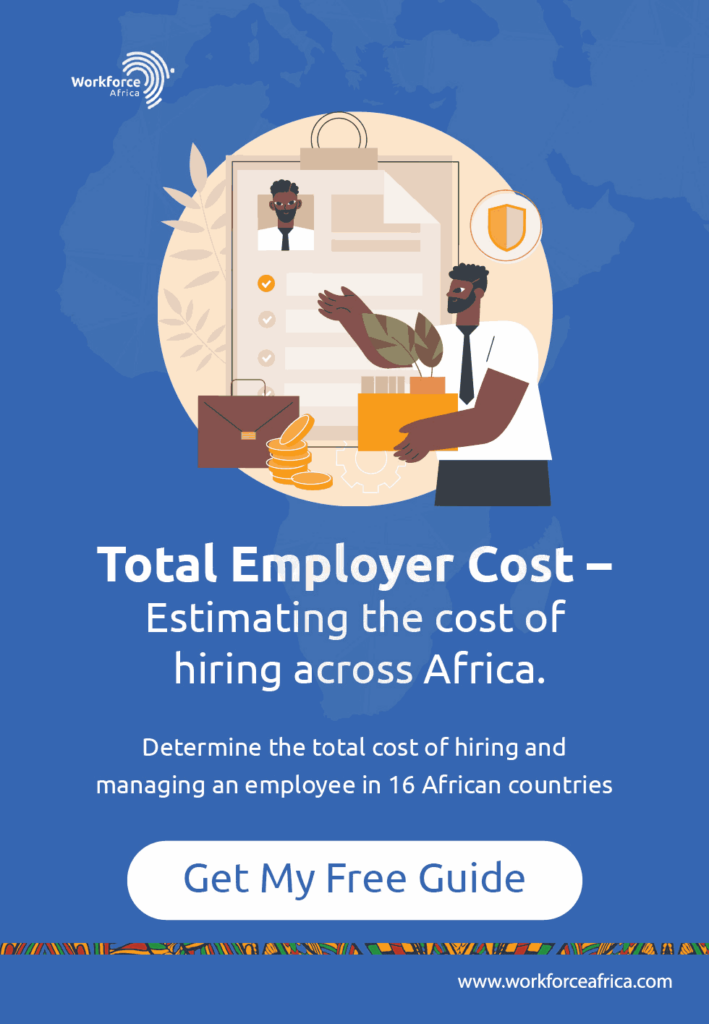
This Customer Service Week, we celebrate you — our clients. Your trust, feedback, and partnership drive everything we do. Thank you for being at the core of our mission.

This article provides an overview of the essential legal rights employees are entitled to under Kenyan law.
It highlights critical aspects such as minimum wage, working hours, leave entitlements, and termination protocols, ensuring that global employers remain compliant and foster fair labour practices.
As East Africa continues to attract global businesses, understanding the critical employee right in Kenya outlined in the country's labour laws is not just essential, but also helps employers scale their business in the region.
This knowledge equips them to maintain compliance and foster a positive work environment.
Kenyan employment regulations prioritise employee welfare and cover aspects such as fair wages, working hours, leave entitlements, and protection against unfair termination.
This article will help global employers with a comprehensive guide to these fundamental employee rights, ensuring they can effectively navigate the Kenyan labour market.
Whether expanding your operations or managing local talent, staying informed about Kenya labour laws is crucial for avoiding legal issues and fostering long-term success.
According to labour laws in Kenya, employers can terminate employees based on solid grounds.
These grounds must be justifiable and well-documented to ensure fairness and legality in the termination process.
This emphasis on fair and lawful termination not only ensures compliance with the law but also makes employees feel respected and fairly treated.
For instance, an employee's misconduct, such as violating company policies or engaging in unethical behaviour, can be a valid reason for termination.
Similarly, an employee's poor performance, which may include consistently failing to meet job expectations or productivity standards, can also be grounds for dismissal.
Additionally, physical incapacity, which prevents workers from performing their job duties effectively, is another legitimate reason for termination.
Participation in an illegal strike, which disrupts the business's everyday operations, can also lead to an employee's dismissal.
On the other hand, employees are entitled to certain protections under employment laws in Kenya.
One key right is the right to receive at least one month's notice before termination.
This notice period allows employees to prepare for the transition, seek new employment opportunities, and manage their personal affairs.
The notice period is a crucial aspect of labour laws designed to provide a fair and balanced approach to employment termination, ensuring that employees are not abruptly left without income or support.
This balance of rights and responsibilities helps maintain a fair and just workplace environment.
Recommended Post: Mastering Business Success in Kenya: A Comprehensive Guide
In Kenya, employees are entitled to employee right in Kenya, ensuring reasonable working conditions that prioritise safety, health, and well-being.
This includes access to essentials such as clean drinking water and necessary medical supplies.
Employers are obligated to maintain a safe workplace, free from health risks, with regular inspections to prevent accidents and health hazards.
A compliant work environment under employee right in Kenya should include proper ventilation, adequate lighting, and ergonomic furniture, all contributing to a safe and supportive workspace.
Furthermore, employers must ensure that safety protocols are in place and that employees are trained to handle emergencies.
This includes having readily available first aid kits and ensuring clear procedures for dealing with workplace injuries or illnesses.
If an employer fails to meet these standards, employees can raise concerns and claim that their rights have been violated.
This can be done through internal company channels or by seeking assistance from labour unions or legal bodies.
By upholding these standards, employers not only comply with the law but also demonstrate their commitment to fostering a productive and positive work environment.
Employees who feel safe and cared for are not just more likely to be motivated, but also to feel valued and secure in their roles.
Therefore, maintaining reasonable working conditions is not just beneficial for both employees and employers, but also a testament to the employer's care and responsibility.
Under Section 28 of the Employment Act, employees are entitled to 21 days of annual leave each year.
This leave is fully paid, meaning employees receive their regular salary during this period without the obligation to work.
Notably, these 21 days include all public holidays, ensuring employees can enjoy their time off without losing pay.
This provision is designed to promote work-life balance, allowing employees to rest and recharge, leading to increased productivity and job satisfaction.
In addition to annual leave, the Employment Act also provides for maternity leave. Female employees are entitled to three months of fully paid maternity leave upon the birth of a child.
This ensures that new mothers have the necessary time to recover from childbirth and bond with their newborns without the financial stress of unpaid leave.
It is crucial to note that employers are prohibited from dismissing female employees due to pregnancy.
This protection is in place to prevent discrimination and ensure that women do not face job insecurity during a critical period of their lives.
These leave entitlements, such as annual leave and maternity leave, reflect a strong commitment to fair labour practices and the well-being of employees.
By providing adequate leave, employers help create a supportive and equitable work environment, which benefits the employees and the organisation.
Redundancy refers to the dismissal of an employee because the employer no longer needs the employee's role to be performed.
This situation can arise for various reasons, such as organisational restructuring, technological advancements, or economic downturns that reduce the workforce.
According to Section 40 of the Employment Act, employee right is clearly defined in cases of redundancy.
A fundamental right is an entitlement to receive a termination notice, which must be in writing and issued at least one month prior to the termination date.
This advance notice period is essential, providing employees with time to prepare for the transition, explore new employment opportunities, and organise their personal affairs.
The written notice should clearly state the reasons for the redundancy and outline any entitlements the employee may have, such as severance pay or other benefits.
Employers are also encouraged to consult with the affected employees or their representatives to discuss the redundancy process and explore any possible alternatives to dismissal.
This can include redeployment to other organisational roles or offering retraining programs.
By adhering to these legal requirements, employers ensure that the redundancy process is conducted fairly and transparently.
This not only helps protect employee right but also maintains the employer's reputation and fosters a positive work environment.
Proper handling of redundancies safeguards employee rights and supports employees through a challenging period, mitigating potential negative impacts on their well-being and morale.
Recognising and respecting employee right in Kenya is vital for global employers seeking to build strong, compliant, and successful operations.
By adhering to local labour laws and ensuring fair treatment of employees, businesses can not only avoid legal risks but also foster a motivated and productive workforce.
From understanding wage requirements to managing termination processes, staying informed about Kenyan labour regulations will empower employers to make informed decisions, protect their reputation, and support long-term growth.
Ultimately, being proactive about employee right in Kenya will contribute to sustainable business success and stronger employer-employee relationships.
The time to act is now, and the future is bright. Schedule a free consultation today to learn more.